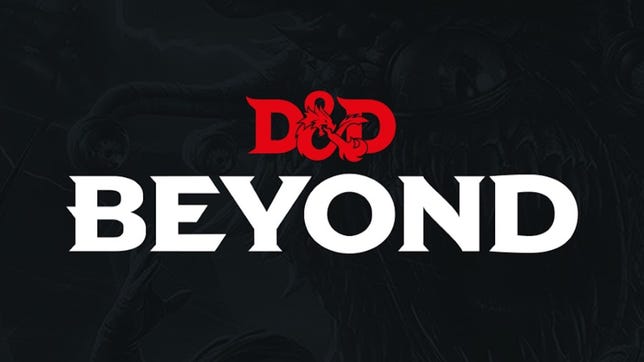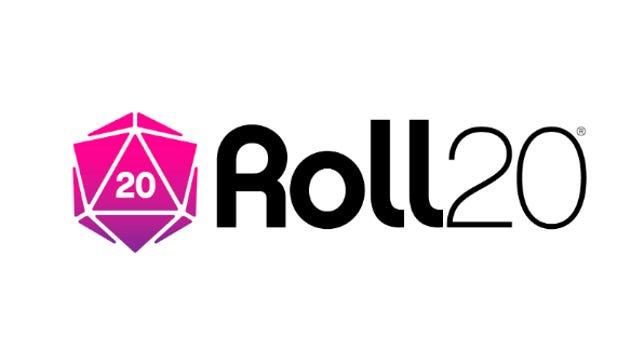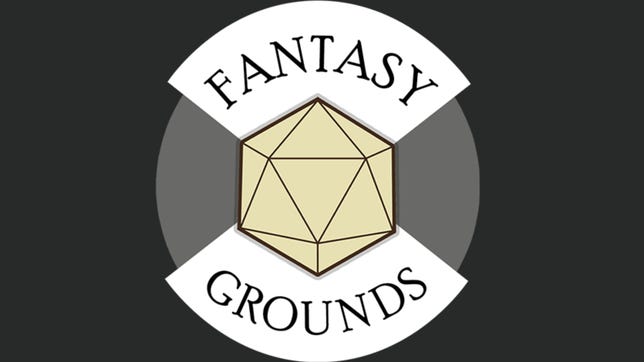Technologies
Best Online D&D Tools
If you want to play D&D online, these services will help you ditch the pen and paper.

Dungeons & Dragons has been around for decades, but we’re in the middle of a D&D renaissance that’s breathing new life and new players into the world’s best-known tabletop RPG. There’s a new movie coming out in April, and Amazon studios just inked a major deal in January to bring more Critical Role adventures, such as Legend of Vox Machina, to Prime Video.
Critical Role, along with similar tabletop RPG shows like Dimension 20, have introduced more people to the game, and online video chat apps have made it easier to pull a D&D group together. There are plenty of D&D tools that allow you to play the game online, but it can be a chore to go through each one and understand what it offers, what it doesn’t and how easy it is to use.
We looked at three of the most popular online D&D services — D&D Beyond, Roll20 and Fantasy Grounds — testing each one on a variety of basics:
- How easy was it to build a character sheet?
- How well did the service guide new players through the process?
- How effective and easy to use was the map function, if it had one?
- What does the service add to the D&D experience, and what does it limit?
Each service has different strengths and drawbacks, and we looked at them through the eyes of both experienced and inexperienced players to see how they compared.
Read more: D&D Dragonlance Reboot Is More Than Nostalgia, Less Than It Could Be
If you’re new to the game and mainly interested in trying out a tabletop RPG, D&D Beyond makes it easy to get a character sheet and campaign up and running. If you want everything you need in one place with relatively little fuss, check out Roll20. And for D&D power gamers, Fantasy Grounds allows you amazing levels of automation and control once you invest the time to learn it.
So whether your play group has scattered to different cities, or maybe it’s just easier for everyone to jump on a Zoom call once a week (or month), here are our picks for the best D&D tools to use online.
Best online D&D tools
Fandom
Likes
- Extremely easy to pick up and get started
- Design is simple and easy to navigate
- Impressive features for free accounts
Dislikes
- No interactive map feature
- Limited to Dungeons & Dragons
D&D Beyond was already a popular service long before it was bought by Hasbro, which also owns D&D publisher Wizards of the Coast. It’s a straightforward tool that makes creating characters fun by simplifying most of the process. For people who are new to the game, there’s no easier way to get started.
D&D Beyond’s online character creator is free, allowing you to try different character builds without having to spend a dime. Free accounts only have access to the basic rules (including races and classes), and are limited to six characters, but that should be plenty for most new players.
If you want to invest in your D&D games, you can buy digital versions of official D&D books in a few different flavors. D&D Beyond offers sourcebooks, like Tasha’s Cauldron of Everything and Explorer’s Guide to Wildemount, which give you new settings and character options. It also offers adventure books, like Curse of Strahd and Candlekeep Mysteries, which DMs can use to run campaigns. Both types of books are typically $30 apiece, though some smaller packages cost less.
You can also buy a subscription at either the Hero tier ($3 per month) or the Master tier ($6 per month) to unlock extra features. The Hero tier allows you to make as many character sheets as you want and also opens up access to test new D&D Beyond tools. The Master tier adds the option to share content from any of your purchased books with the rest of the players in your campaign.
A Hero tier subscription isn’t great value unless you play in a lot of D&D groups (more than six). The real value of a subscription is sharing content with the Master Tier — that $6 per month allows you to share features from sourcebooks and adventure books with your entire group, rather than requiring everyone to buy their own copy. A DM with a Master-tier subscription can spend $6 per month and share purchased content with the rest of the group even if they have free accounts.
The primary drawback of D&D Beyond is that it focuses on character sheets, not other elements of a D&D table. Most notably, it lacks meaningful map features to help your group visualize combat and exploration. If your gaming sessions focus on those elements, you’ll need to supplement with your own maps or the map tools of our other top picks. Both Roll20 and Fantasy Grounds offer useful map features.
But of the tools we tested, D&D Beyond was far and away the simplest to get started with. It walks you through each step of the process — choosing a race and class for your character, constructing your build as you level your character, and navigating the rest of the starting options. For options and systems that are a little confusing, you’ll have the ability to read through more detailed explanations in popups. If you’re trying D&D for the first time or you just want an easy way to manage your character sheet, D&D Beyond should be your first stop.
Roll20
Likes
- Character sheets, maps and dice in one tool
- Interactive maps that are easy to learn
- Includes video chat
Dislikes
- Overall design is a little messy
- DMs have to give other players character sheets to fill out
If you’re looking for a one-stop shop for all your D&D gaming, we recommend Roll20 for its versatility. Roll20 offers practically everything you could ask for in a virtual D&D tool: You’ll be able to make characters and play out epic battles on an interactive map, all without even needing an external service for video or voice chat. The tradeoff is a little more time spent figuring out how features work.
Everything in Roll20 is run through its Games feature, and your DM will need to create a game for everyone to get started. The DM can then invite players to join through emailed invitations or simple copy-and-paste links. Once everyone’s in, the DM can create blank character sheets and assign those characters out to players for them to customize.
Players can create their characters using Roll20’s Charactermancer tool, which walks them step by step through the character creation process, similar to D&D Beyond. You’ll see snippets from the core rules to help explain any new or confusing features. At the end of the process, your character sheet will be set up and ready to go. You also have the option of pulling up a blank character sheet and filling it out directly, which may be appealing for more experienced players, but the Charactermancer is generally the simpler option.
The Roll20 character sheets don’t feel quite as stylish or easy to navigate as D&D Beyond’s, but Roll20 makes up for it with a variety of other features you won’t find on D&D Beyond. The biggest one is interactive maps. DMs can create maps for their campaigns, allowing your group to traverse dungeons and engage in battles more tactically. DMs can use fog of war to limit map vision to what players can actually see, and players can move tokens representing their characters around the map, just like you would at a physical table.
Like the other online D&D tools we reviewed, Roll20 has a marketplace where you can buy digital versions of sourcebooks and adventure books, which unlock new features for your character sheets and maps. The costs will generally match what you see in D&D Beyond and Fantasy Grounds, so don’t worry too much about bargain hunting. The biggest difference is that Roll20 and Fantasy Grounds also offer books from other tabletop RPGs like Pathfinder and Call of Cthulhu, whereas D&D Beyond is strictly based on Dungeons & Dragons.
Roll20 offers free accounts and two subscription options that unlock additional features. Like D&D Beyond, you can pay $6 per month (discounted to $50 annually if you pay upfront) to share purchased content with other players in their game. That subscription also unlocks features like dynamic lighting and the ability to transfer characters between games. For $10 per month ($100 annually if you pay upfront), you can also copy other materials between games, unlock additional customization options and get a monthly reward.
Roll20 is a good middle ground between the other tools we tested. It’s not quite as slick as D&D Beyond, but it offers more features like interactive maps, and it works with other game systems. It’s not quite as robust as Fantasy Grounds, but it’s generally easier to pick up and use. If you want a tool that lets you run a whole tabletop RPG virtually, and you’re less interested in learning how to customize or automate your gameplay, try Roll20.
SmiteWorks
Likes
- Takes care of rules so you can focus on play
- Enables homebrew content
- One-time purchase option
Dislikes
- Steep learning curve just to get started
- Less beginner-friendly than other services
Fantasy Grounds is a powerful but complex tool that requires a lot of work upfront to be able to get the most out of the service. It allows the most customization of the tools we reviewed, but it also took the longest to get started. If you want a tool that’s easy to pick up and get started with, you’re better off with D&D Beyond or Roll20, but if you want ultimate control over your session and want something that will handle most of the rules for you, Fantasy Grounds is the most complete option we tested.
Before we get into the good parts of Fantasy Grounds, it’s important to understand the barrier to entry. Fantasy Grounds is not intuitive or beginner-friendly. It does offer video guides to help you get started, but you’ll need to spend about an hour just watching those to get a handle on the barest basics. Even after watching the tutorial, it was sometimes a struggle to operate the system’s mechanics. It also seems designed for a desktop setup — we had a hard time navigating the very small menu options on a laptop trackpad, which wasn’t a problem with the other services. Even with guides, Fantasy Grounds was sometimes frustrating to learn how to use.
The flip side of that coin is that Fantasy Grounds is astoundingly robust. It knows that some D&D players want to control every detail of their sessions. Just like the other tools we reviewed, Fantasy Grounds lets you build a digital character sheet. And like Roll20, it lets you use digital maps for combat and exploration. But Fantasy Grounds gives you the tools to customize your entire campaign in more ways than the other tools we tested.
Perhaps more importantly, Fantasy Grounds understands the rules of a system and will automatically apply them. If a player clicks an enemy on the map and chooses the weapon they want to attack with, Fantasy Grounds will roll a d20, add the appropriate attack roll modifier, then compare that to the enemy’s armor class and tell you whether the attack hits or misses. Other online D&D tools will do individual pieces of that (like adding the appropriate modifier to your attack roll), but won’t compare that to the enemy’s AC and translate it into a hit or miss. Once you’re up and running, Fantasy Grounds allows your play group to spend less time doing math or looking up rules and more time just playing the game.
Fantasy Grounds uses similar subscription pricing to the other services. Players can create free accounts with limited functionality. Or you can pay $4 per month for a standard subscription that lets you play with other people who have a Fantasy Grounds subscription. You also have the option of an ultimate subscription for $10 per month, which allows you to host a campaign for players on free accounts and share content with them. That makes it a little more expensive than other services for DMs who want to share content with players on free accounts. Uniquely, Fantasy Grounds also offers one-time payment options: $39 for a standard license and $149 for an ultimate license. Players on standard or ultimate subscriptions or licenses will be able to purchase sourcebooks for their campaigns, and just like Roll20, Fantasy Grounds allows you to play multiple tabletop RPG systems in addition to D&D.
Fantasy Grounds is best suited for detail-oriented dungeon masters who want to be able to fine-tune every aspect of their campaign and their players’ experience. If you like to create your own campaign (aka «homebrew») or let your players run customized classes, you’ll have an easier time doing that in Fantasy Grounds than Roll20. D&D Beyond is also pretty capable with homebrew content, but again, it doesn’t offer a maps feature.
Online D&D FAQs
What do I need to play D&D online?
You can play Dungeons & Dragons online without investing in tools or game services. All you really need are a group of people to play with, an internet connection and a copy of the basic rules, which are available for free from Wizards of the Coast. Those three things are enough for you to run a basic session. The appeal of online D&D tools is the way they help you organize and automate the game. For example, D&D Beyond’s character sheets will automatically tally your proficiency bonus, your ability modifiers and your items’ stats and will calculate everything for you whenever you need to roll for something. Without those tools, you have to manually keep track of bonuses and add them to the appropriate rolls. D&D Beyond lets you sign up for a free account and start making character sheets if you want to try out the game without investing money into it. Roll20 and Fantasy grounds also offer free accounts, but it’s not as easy to start making characters with those accounts.
What are the best D&D map makers?
There are dozens of online tools to help you build a map for your Dungeons & Dragons campaign. However, of the services we tested, only Roll20 and Fantasy Grounds feature interactive maps. Both allow you to use maps from official Dungeons & Dragons adventures or make your own custom maps. You’ll be able to place player characters and enemies across the map to let your players visualize exploration and combat. Roll20’s map system was easier to use, but Fantasy Grounds had more features.
Which D&D service is best?
We tested three Dungeons & Dragons tools and found that each one had its own particular strengths and drawbacks. Roll20 might be the best option if you want a single solution for all your online RPG adventures. D&D Beyond has excellent digital character sheets and resources for beginners. Fantasy Grounds is the most powerful tool overall, but requires substantially more time to learn and set up than the other two. You can also mix and match — making character sheets in D&D Beyond, but using Roll20 for any combat encounters, for example. We recommend creating free accounts with different services to find out what you like or dislike and choose what works best for you.
Technologies
How Team USA’s Olympic Skiers and Snowboarders Got an Edge From Google AI
Google engineers hit the slopes with Team USA’s skiers and snowboarders to build a custom AI training tool.

Team USA’s skiers and snowboarders are going home with some new hardware, including a few gold medals, from the 2026 Olympics. Along with the years of hard work that go into being an Olympic athlete, this year’s crew had an extra edge in their training thanks to a custom AI tool from Google Cloud.
US Ski and Snowboard, the governing body for the US national teams, oversees the training of the best skiers and snowboarders in the country to prepare them for big events, such as national championships and the Olympics. The organization partnered with Google Cloud to build an AI tool to offer more insight into how athletes are training and performing on the slopes.
Video review is a big part of winter sports training. A coach will literally stand on the sidelines recording an athlete’s run, then review the footage with them afterward to spot errors. But this process is somewhat dated, Anouk Patty, chief of sport at US Ski and Snowboard, told me. That’s where Google came in, bringing new AI-powered data insights to the training process.
Google Cloud engineers hit the slopes with the skiers and snowboarders to understand how to build an actually useful AI model for athletic training. They used video footage as the base of the currently unnamed AI tool. Gemini did a frame-by-frame analysis of the video, which was then fed into spatial intelligence models from Google DeepMind. Those models were able to take the 2D rendering of the athlete from the video and transform it into a 3D skeleton of an athlete as they contort and twist on runs.
Final touches from Gemini help the AI tool analyze the physics in the pixels, according to Ravi Rajamani, global head of Google’s AI Blackbelt team. which worked on the project. Coaches and athletes told the engineers the specific metrics they wanted to track — speed, rotation, trajectory — and the Google engineers coded the model to make it easy to monitor them and compare between different videos. There’s also a chat interface to ask Gemini questions about performance.
«From just a video, we are actually able to recreate it in 3D, so you don’t need expensive equipment, [like] sensors, that get in the way of an athlete performing,» Rajamani said.
Coaches are undeniably the experts on the mountain, but the AI can act as a kind of gut check. The data can help confirm or deny what coaches are seeing and give them extra insight into the specifics of each athlete’s performance. It can catch things that humans would struggle to see with the naked eye or in poor video quality, like where an athlete was looking while doing a trick and the exact speed and angle of a rotation.
«It’s data that they wouldn’t otherwise have,» Patty said. The 3D skeleton is especially helpful because it makes it easier to see movement obscured by the puffy jackets and pants athletes wear, she said.
For elite athletes in skiing and snowboarding, making small adjustments can mean the difference between a gold medal and no medal at all. Technological advances in training are meant to help athletes get every available tool for improvement.
«You’re always trying to find that 1% that can make the difference for an athlete to get them on the podium or to win,» Patty said. It can also democratize coaching. «It’s a way for every coach who’s out there in a club working with young athletes to have that level of understanding of what an athlete should do that the national team athletes have.»
For Google, this purpose-built AI tool is «the tip of the iceberg,» Rajamani said. There are a lot of potential future use cases, including expanding the base model to be customized to other sports. It also lays the foundation for work in sports medicine, physical therapy, robotics and ergonomics — disciplines where understanding body positioning is important. But for now, there’s satisfaction in knowing the AI was built to actually help real athletes.
«This was not a case of tech engineers building something in the lab and handing it over,» Rajamani said. «This is a real-world problem that we are solving. For us, the motivation was building a tool that provides a true competitive advantage for our athletes.»
Technologies
Virtual Boy Review: Nintendo’s Oddest Switch Accessory Yet Is an Immersive ’90s Museum
No one needs a Virtual Boy. But I always wanted one. And now it’s living with me at last.

On my desk is a Nintendo device that looks like equipment stolen from a cyberpunk optical shop. It’s big, it’s red and black, it sits on a tripod, it has an eyepiece, and it has a Nintendo Switch 2 nestled inside. Hello, Virtual Boy, you’re back.
Nintendo has made a lot of weird consoles over the years, but the Virtual Boy was the weirdest. And the shortest lived. Released in 1995 and discontinued a year later, it lived for a blink of an eye during my final year in college. I never really had time to consider buying one.
It would have been perfect for me, a Game Boy fan who was in love with the idea of VR even back then. Nintendo has been flirting with virtual reality in various forms for decades, and the Virtual Boy was the biggest swing. But it wasn’t VR at all, really. It was a 3D game console in red and black monochrome, a 3D Game Boy in tripod form.
I’m setting the stage because right now you can order a $100 Virtual Boy recreation that’s a big, strange Switch accessory. It’s staring at me now, taking up a lot of space. It’s too big to fit in a bag. It’s a tabletop console, really, and Nintendo has created this Virtual Boy viewer as a way to play a set of free-with-subscription games on the Switch and Switch 2.
Is it worth your money? I’d call it a museum-piece collectible, not a serious piece of gaming hardware. Still, my kid stuck his head in, played 3D Wario Land, and came out declaring it was really cool. He loves old retro games. But I don’t know how often he’ll pop his head back in.
Nintendo’s first stab at 3D now feels like a museum piece
For comparison, I pulled my old Nintendo 3DS XL out of the drawer where it had been tucked away and booted it up, marveling again that Nintendo actually made a glasses-free 3D game handheld once upon a time. The 3DS is a far more capable and advanced game system, but consider the Virtual Boy an ancient attempt to get there first.
The Virtual Boy was a monochrome red-and-black LED display system, a tabletop-only device that was neither handheld nor TV-connected. The Nintendo Switch’s tabletop-style game modes feel like a bit of an evolutionary link to the Virtual Boy, so it’s poetic that the Switch pops into the new Virtual Boy to power the games and provide the display.
The plastic Virtual Boy is just an odd set of VR goggles for the Switch, but with a red filter on the lenses. Also, you can’t wear it. You keep your head stuck in it.
Awkward and easy to use
All the trappings on this recreation look like the old Virtual Boy but don’t work: You can see a simulated headphone jack, controller port, a sort of knob on top. I just unsnap the plastic case and slide the Switch in, carefully, and then snap it back over. That’s all it is.
To control it, you use the Switch controllers detached or another Switch-compatible controller. Launching the Virtual Boy app — free on the eShop, but you need a Switch Online Plus Expansion Pack account, which costs $50 a year, or $80 for a family membership — splits the Switch display into two smaller, distorted screens. In the Virtual Boy, it looks properly 3D. When I’m done playing, I pop the Switch back out.
As I said in my first hands-on, the big foam-covered eyepiece is more than wide enough for big glasses, and was fine to dip my face into. Getting a comfortable angle to stay playing for a while is another challenge. The Virtual Boy’s included tripod-like stand can adjust the angle, but not as wide as I’d like. I’m sort of hunched over while playing, which gives me a bit of pain. Leaning on the table with my controllers in hand helps.
The red-lensed front eyepiece can be removed, and a later software update will allow Virtual Boy games to be played in several color mixes beyond red and black. Also, you can unscrew an inner bracket to hold the Switch 2 and swap in an included Switch-sized bracket instead. The Switch Lite doesn’t work with the Virtual Boy, however.
The weirdness is my type of indie
All you get right now are seven of the 16 games Nintendo has promised to release for the Virtual Boy. Believe it or not, there were only 22 games ever released for this system. The 16 will include two that were never released before, which is a fun collector’s novelty.
But what’s amazing to me now is that, sinking into these oddball retro games with their pixelated NES-slash-Game Boy aesthetics in red and black, they feel weirdly timely. The janky, oddball, almost-parallel-universe Nintendo vibe feels like the indie retro aesthetic that’s been big for a while now. After all these years, is the Virtual Boy now finally awesome?
Games like UFO 50 (a compilation of new indie games made to feel like an archive of ’80s games for a console that never was) and indie consoles like Panic Playdate (still my favorite black and white mini handheld, a home for all sorts of homebrew retro games) match my feeling diving into these Virtual Boy games and figuring them out.
Wario Land is probably the best: A side-scrolling Wario game with multiple depth levels, it gives me Game Boy Mario game vibes. Golf has multiple holes and an aiming system, and it’s relaxed and basic (and hard to perfect). 3D Tetris has you dropping blocks down a well to fill in layers, with a Tron-like puzzle feel. Red Alert’s wireframe 3D shooter design is like Star Fox, but boiled all the way down to simple vector lines. Galactic Pinball has several tables, and it’s some lovely, very old-school 3D Nintendo pinball fun. Teleroboxer is Punch-Out with robots, with a style that also reminds me of the early Switch game Arms. And The Mansion of Innsmouth is a creepy 3D dungeon-crawling game (in Japanese) where you try to get to exits before time runs out… or monsters get you.
The remaining games coming this year include Mario Tennis, another Tetris game, a wireframe 3D racer, a 3D reinvention of the original Mario Bros. game called Mario Clash and a 3D Space Invaders. By the end of Nintendo’s release schedule, a good chunk of Virtual Boy’s catalog will be there.
A novelty that’s niche as hell
Worth it? Again, if you love weird and retro, and are intrigued by lost Nintendo 3D games, then yes. But if you’re looking for cutting-edge, then no.
Keep in mind: You can buy a cheaper $25 cardboard set of goggles for the Switch that lets you play the Virtual Boy games, too (or use the old Labo VR goggles Nintendo made in 2019, if you have them). That’s a more sensible path. There are even unofficial emulators for Virtual Boy games on the Meta Quest and Apple Vision Pro. But who said the Virtual Boy was sensible?
A Nintendo game system that’s a big set of red goggles on a tripod is inherently absurd. And I welcome its weird footprint in my home, because that’s exactly who I am. But it’s also a testament to Nintendo’s perpetual interest in the bleeding edge of gaming. VR, glasses-free 3D, AR, modular consoles… Nintendo’s poking around the edges.
Is the Virtual Boy a sign that Nintendo could make its own VR or AR game system again someday soon, or as an extension of the Switch 2? Who knows? Shigeru Miyamoto, Nintendo’s legendary video game designer, sounded intrigued and elusive about it when I asked him last year. But there’s never any real way to guess where Nintendo’s heading. The Virtual Boy is a museum-piece reminder of that.
Technologies
Today’s NYT Mini Crossword Answers for Friday, Feb. 20
Here are the answers for The New York Times Mini Crossword for Feb. 20.

Looking for the most recent Mini Crossword answer? Click here for today’s Mini Crossword hints, as well as our daily answers and hints for The New York Times Wordle, Strands, Connections and Connections: Sports Edition puzzles.
Today’s Mini Crossword expects you to know a little bit about everything — from old political parties to architecture to video games. Read on for all the answers. And if you could use some hints and guidance for daily solving, check out our Mini Crossword tips.
If you’re looking for today’s Wordle, Connections, Connections: Sports Edition and Strands answers, you can visit CNET’s NYT puzzle hints page.
Read more: Tips and Tricks for Solving The New York Times Mini Crossword
Let’s get to those Mini Crossword clues and answers.
Mini across clues and answers
1A clue: Political party that competed with Democrats during the 1830s-’50s
Answer: WHIGS
6A clue: Four Seasons, e.g.
Answer: HOTEL
7A clue: Dinosaur in the Mario games
Answer: YOSHI
8A clue: Blizzard or hurricane
Answer: STORM
9A clue: We all look up to it
Answer: SKY
Mini down clues and answers
1D clue: «Oh yeah, ___ that?»
Answer: WHYS
2D clue: Says «who»?
Answer: HOOTS
3D clue: «No worries»
Answer: ITSOK
4D clue: Postmodern architect Frank
Answer: GEHRY
5D clue: Narrow
Answer: SLIM
-

 Technologies3 года ago
Technologies3 года agoTech Companies Need to Be Held Accountable for Security, Experts Say
-

 Technologies3 года ago
Technologies3 года agoBest Handheld Game Console in 2023
-

 Technologies3 года ago
Technologies3 года agoTighten Up Your VR Game With the Best Head Straps for Quest 2
-

 Technologies4 года ago
Technologies4 года agoBlack Friday 2021: The best deals on TVs, headphones, kitchenware, and more
-

 Technologies5 лет ago
Technologies5 лет agoGoogle to require vaccinations as Silicon Valley rethinks return-to-office policies
-

 Technologies5 лет ago
Technologies5 лет agoVerum, Wickr and Threema: next generation secured messengers
-

 Technologies4 года ago
Technologies4 года agoOlivia Harlan Dekker for Verum Messenger
-

 Technologies4 года ago
Technologies4 года agoiPhone 13 event: How to watch Apple’s big announcement tomorrow



